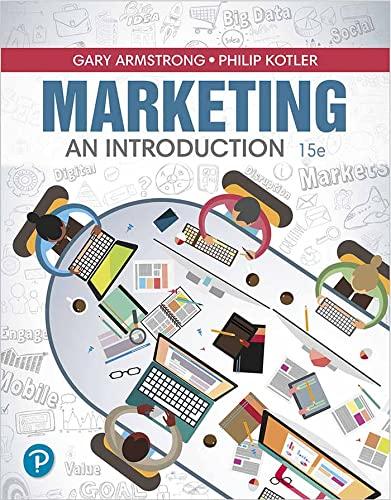In 2020, Pharrell Williams launched an all-gender, all-race skincare line called Humanrace, sold exclusively through its website
Question:
In 2020, Pharrell Williams launched an all-gender, all-race skincare line called Humanrace, sold exclusively through its website (www.humanrace.com). The skincare line had three vegan and sustainable products sold in Japan-inspired green packaging made with 50 percent post-consumer recycled landfill plastic with braille writing for the visually impaired. The signature recyclable and refillable green packaging includes what a consumer needs for a three-step, three-minute facial: a cleanser, an exfoliant, and a moisturizer. The sustainable packaging is one major source of differentiation for the product.
Despite the brand’s goal of accessibility to all, its prices were expensive relative to those of competing products. When launched, the cost of the three-product set was $100. One reason for the high price was the quality of the ingredients. Another reason was fit with the brand’s positioning as a high-quality product that really works. Even so, Humanrace’s prices raised questions about whether it really offered skin care for all humans. Still, Pharrell Williams was applauded for associating his celebrity with a position related to inclusivity.
Humanrace’s focus on reusable, recyclable plastics; high-quality, vegan ingredients; and skincare products that work for all humans seems to go against the traditional segmentation and targeting process. Defend this market segmentation strategy. Is it ethical to characterize the Humanrace product line as skin care for all?
Step by Step Answer:






